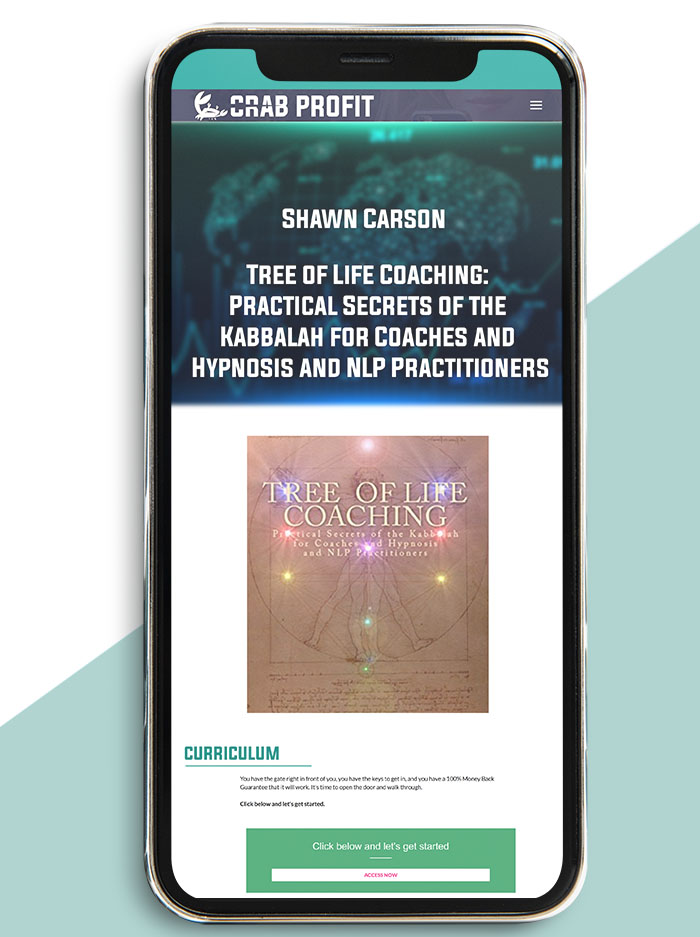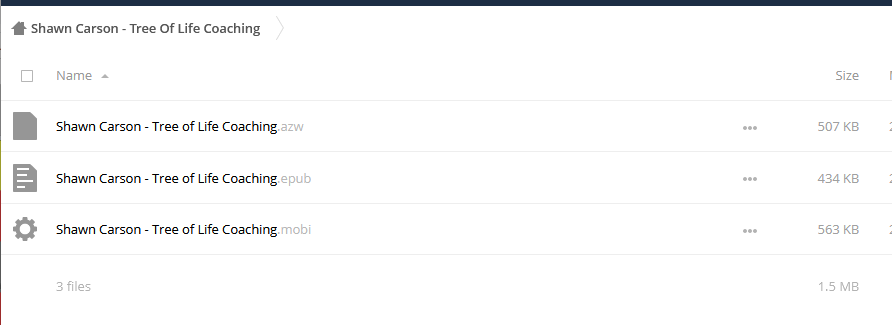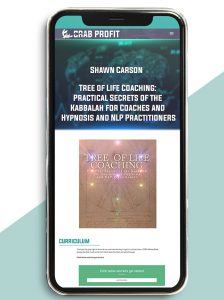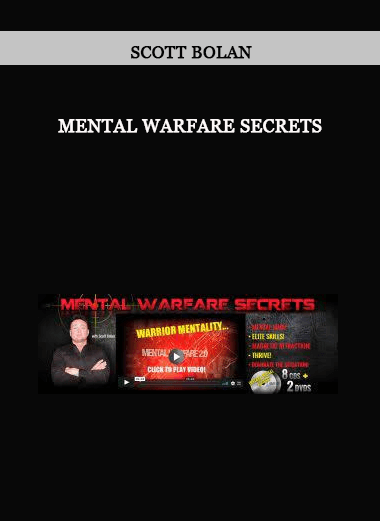Courses Infomation
Tree of Life Coaching: Practical Secrets of the Kabbalah for Coaches and Hypnosis and NLP Practitioners by Shawn Carson

Tree of Life Coaching: Practical Secrets of the Kabbalah for Coaches and Hypnosis and NLP Practitioners by Shawn Carson
The Tree of Life is often described as the DNA of human experience and comes from the centuries-old tradition known as the Kabbalah. Because the original teachers of the Kabbalah wished to keep their mystical secrets from becoming known to non-adepts they disguised them using impenetrable language and obscure metaphors. Until now…
In this ground-breaking book Shawn Carson reveals the powerful secrets of the Tree of Life in a simple to understand and life-changing way. By discovering your own Tree of Life you can gain control over your own life and experience. By understanding the Tree of Life of those around you, you can become more influential and help others make lasting, fully integrated changes in their lives.
Aimed mainly at professional coaches and hypnotists, the system presented in this book allows you to use the Tree of Life to:
- Become a more powerful and congruent change-worker
- Understand your client’s true problem instantly and more deeply than ever before
- Develop a plan for working with your client that takes into account their entire experience from the
physical world through to the divine (in whatever way your client understands it)
Tree of Life coaching can be combined with your current coaching methods, or used as a system of coaching in its own right. You will be able to use it to install change in your client in one session, or to develop a multisession approach, tailored to that specific client, that will lead to total transformation.
What is HYPNOSIS – NLP?
Neuro-linguistic programming (NLP) is a technique used to provide clients with the tools to overcome certain life obstacles. NLP is in short, a way of helping people help themselves to reach a state of excellence, happiness and peace of mind.
NLP is a learning model devised by two American academics (Dr Richard Bandler and John Grinder) in the early 70s, who were fascinated by the relationship between language behaviour and excellence. They believed that by analysing the unconscious linguistic techniques used by successful people, they could produce ‘a recipe for excellence’ in which other people could consciously learn to apply said ‘successful techniques’.
What is NLP?
NLP stands for neuro-linguistic programming.
Neuro – All of our experience is gained from the neurological processes that govern our five senses: taste, touch, smell, sight and sound.
Linguistic – We make sense of these experiences through a set of filters, including language. The language we use can also affect the way we experience things.
Programming – This is a way of controlling the outcome of something. A person can use NLP to ‘predetermine excellence’ by adjusting the language we use.
To break it down, the science aspect is the process of extracting and learning the techniques. The art aspect is the act of applying the techniques to our own lives.
There are four ways NLP techniques are most commonly used:
to teach effective communication
to ensure continual personal development
to enhance learning
to encourage a greater enjoyment in life
NLP is used to teach us how changing our perception of the world can lead us to adjust and adapt our behaviours to live the life we want.
NLP and hypnotherapy
Hypnotherapists aim to induce a relaxed and receptive state (trance) in their clients in order to access the subconscious. Many of the obstacles that prohibit or limit a person’s experiences are deeply embedded in the subconscious, so by accessing the thought processes that usually remain hidden, hypnotherapists can work with clients to change the restrictive thought pattern and make room for positive development.
An NLP practitioner will look at your attitude, your language and how you use it, your understanding of relationships and your ability to build rapport, as well as the physical and emotional states that are best for accomplishing a task. Effective communication and perception of others and ourselves, will also be key focuses. All of these will be analysed and examined by the professional, so that a strategy for improving understanding, motivation, learning and memory can be formed.
Many hypnotherapists train in NLP to help improve their ability to communicate more effectively with their clients, as well as to help their clients communicate more effectively with themselves.
More From Categories : HYPNOSIS – NLP
Curriculum:
157:” “;}}
“;}}














![Peter Titus - Create Your Own Automated Stock Trading Robot In EXCEL! [39 Video (MP4) + 2 Document (HTML)]](https://crablib.info/wp-content/uploads/2021/02/Peter-Titus-Create-Your-Own-Automated-Stock-Trading-Robot-In-EXCEL-39-Video-MP4-2-Document-HTML.jpg)



















Reviews
There are no reviews yet.